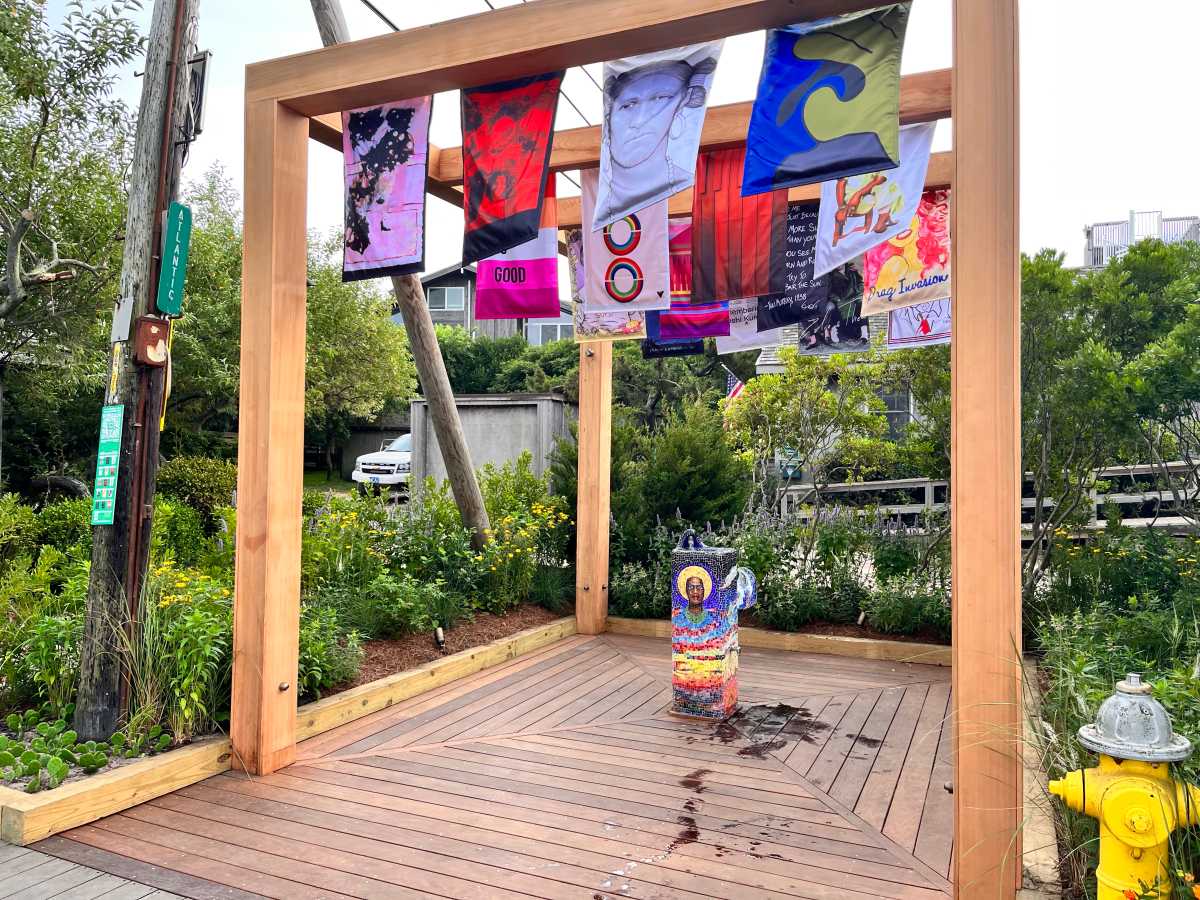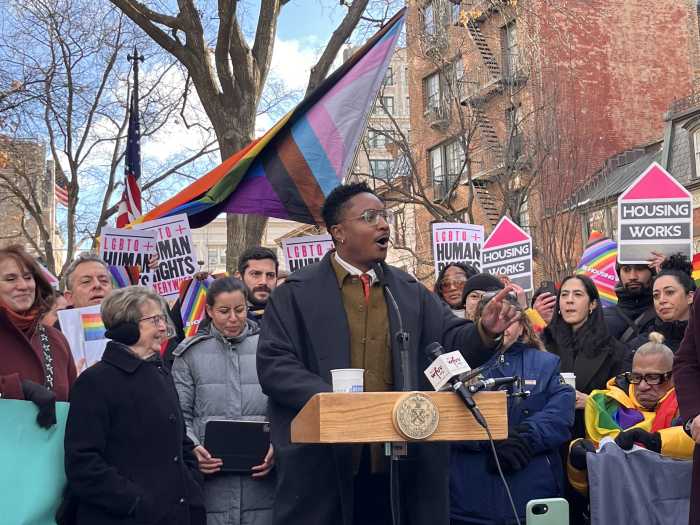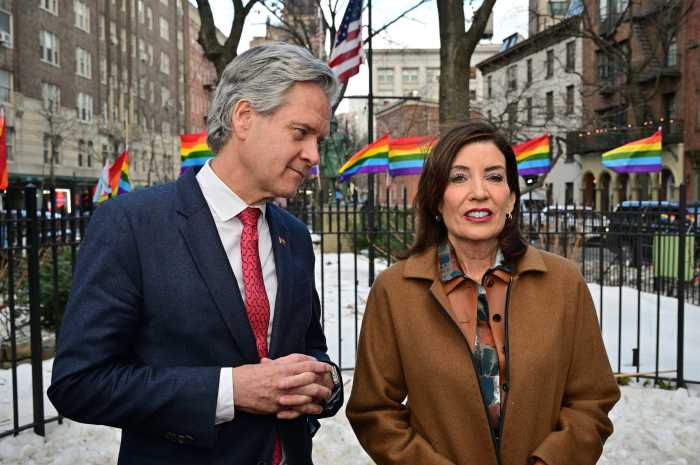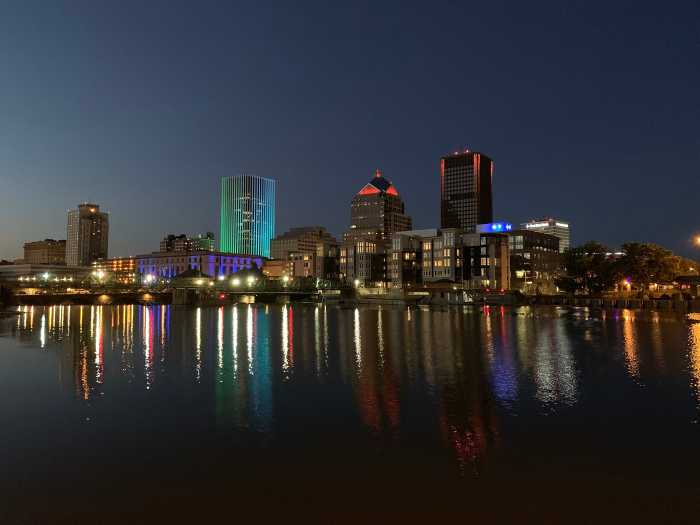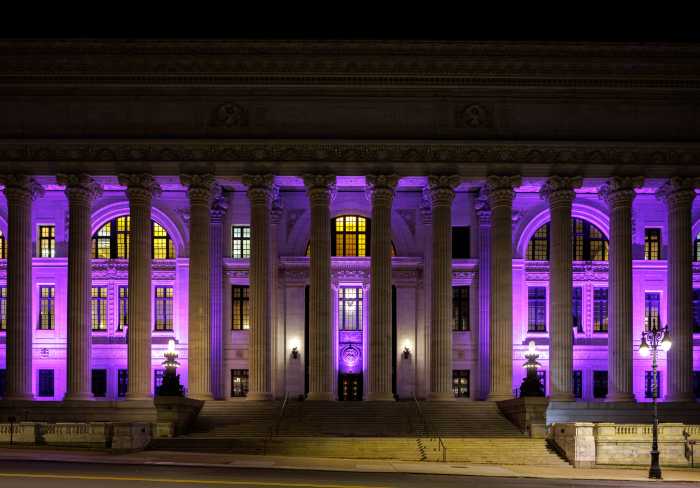More than a dozen LGBTQ leaders and groups — from historic figures of the past to modern-day changemakers — will be recognized at Fire Island’s Trailblazers Park on June 1 as part of a Pride Month kickoff event.
Tucked away just across the Fire Island Pines Marina, Trailblazers Park is raising 16 flags to represent 16 members of the community who will be featured at the park for a two-year stint beginning this Pride Month. Some of the incoming leaders will be on hand when The Pines Foundation hosts a flag-raising ceremony and discussion to introduce the newest additions beginning at noon on the first day of June at Whyte Hall at 577 Fire Island Blvd.
The park was conceived by trans activist Iman Le Caire during Pride Month in 2020 — at the height of the protest movement against police brutality that emerged in the aftermath of the murder of George Floyd — as a way to honor difference-makers like the late trans activist and Stonewall veteran Marsha P. Johnson. The Fire Island Pines Property Owners Association ultimately set the plan into motion with funding from the Pines Foundation before opening in the summer of 2022. While the trailblazers in the park are slated to change with time, the space also features a water fountain centerpiece that pays tribute to Johnson and another late trans activist, Sylvia Rivera.
SAGE CEO Michael Adams will serve as the moderator of the event, which will feature in-person appearances by five of the 16 trailblazers: Minneapolis Councilmember Andrea Jenkins, who is the first Black trans woman to be elected to public office and formerly served as City Council president; Jim Pepper, a former GMHC board of directors member and co-founder of the Stonewall Community Foundation; LGBTQ activist and former Lamba Legal executive director Kevin Cathcart; Richard Burns, who co-founded GLBTQ Legal Advocates and Defenders (GLAD), served as executive director of the LGBT Center in Manhattan, and is the board chair of the American LGBTQ+ Museum; and Phil Wilson, who founded the Black AIDS Institute and spent more than two decades as its president and CEO.
Other incoming trailblazers who will join the park for a two-year term are the late AIDS activist Paul Popham, who once led GMHC; former soccer star and Olympic gold medalist Megan Rapinoe; “RuPaul’s Drag Race” host RuPaul; TransLatin@ Coalition founder Bamby Salcedo; Dan Choi, a military veteran who successfully advocated against the discriminatory “Don’t Ask, Don’t Tell” policy; comedian, actor, and writer Wanda Sykes; the advocacy group ACT UP, which was launched in 1987 to fight HIV/AIDS; Stonewall veteran Stormé DeLarverie; the late LGBTQ activist Urvashi Vaid, who was once the executive director of the Task Force and held numerous leadership roles in the community; Assistant Secretary of Health Rachel Levine, who is the first out trans official to gain Senate confirmation; and Bronx Congressmember Ritchie Torres, who is the first out gay Afro-Latinx member of Congress.
The Fire Island Pines Property Owners’ Association has played an influential role in Trailblazers Park — thanks in large part to their Committee on Black Equality as well as the Honoring Trailblazers Task Force, which further expanded on Le Caire’s vision for the park by proposing to use the space to spotlight even more queer leaders, especially people from marginalized communities and those who have been under-appreciated or otherwise lacked recognition.
The Committee on Black Equality, which was formed in the aftermath of Floyd’s murder, had issued several recommendations to make the Pines more welcoming to people of color, trans and gender non-conforming individuals, and women.
“Trailblazers Park was just one of the recommendations,” Douglas Harris, a Fire Island resident and member of the Committee on Black Equality, said in an interview with Gay City News. Among other suggestions, Harris said the committee called for more diversity in the Pines — including at bars, restaurants, and other social spaces.
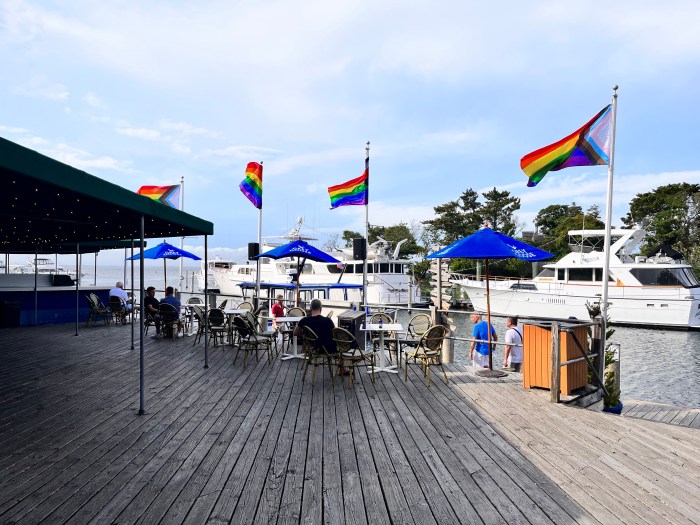
“We made recommendations about the diversity of the workers out here; we made recommendations that the Pines could build public facilities out here,” Harris explained. “There is no public place to use the bathroom. Unlike [Cherry] Grove, there is nothing here in the Pines. It was kind of a way of saying, ‘Don’t come here. Stay away,’ and we wanted to make the Pines much more welcoming and inclusive.”
The recommendation for Trailblazers Park, Harris said, was largely embraced by community members from the beginning. They received one email insisting that the park was inconsistent with the aesthetic of the Fire Island Pines Marina and another one criticizing the name of Trailblazers Park. Overall, though, people were on board.
However, other recommendations — such as the one calling for public restrooms — generated a “much more problematic response,” Harris said.
The process of bringing change to parts of Fire Island can be challenging, especially given how many longtime residents are used to maintaining the status quo. However, Crayton Robey, who is also a member of the Committee on Black Equality, pointed to recent progress through the emergence of organizations such as BOFFO, which is a residency program featuring artists who spend up to four weeks in Fire Island over the summer. BOFFO, Robey said, has brought many diverse artists to Fire Island since it launched in 2009.
“[BOFFA] was one of the first things we were able to kind of transform, and that was kind of a moment because the Pines was used to the standard kinds of organizations that were part of the structure for years,” Robey told Gay City News. “This was a catalyst for a lot of good change to actually happen.”
BOFFA and the Fire Island Pines Arts Project joined forces to create the artwork representing each of the trailblazers who will be showcased at the park. There was an effort to assign the artists to specific trailblazers with whom they felt the greatest connection.
“Luckily, the artists were diverse enough, they had diverse interests, and had interest in designing for different trailblazers,” Harris explained.
As for the trailblazers themselves, they were selected through public nominations that were drawn from people in the Pines as well as LGBTQ organizations and individuals outside of the Pines. There were more than 80 nominations, Harris said, though many were duplicates — and others who were nominated could be considered when the slate of trailblazers gets refreshed in two years. The final 16 trailblazers are selected with emphasis on diversity.
Trailblazers Park represents what Robey described as a “beautiful experiment” — in part because it utilizes art to deliver change.
“The Pines is a playground,” Robey said. “It is not a political arena, although it has become those things in the past — especially in the AIDS epidemic — but what we’ve been able to do with the park is teach our younger community about our heroes and trailblazers that have carved a path for all the freedoms they experience today.”
Those stories are also important to tell, Robey and Harris said, because many of the trailblazers are quietly delivering change in the shadows, away from the public eye — and people from marginalized backgrounds often get even less credit for their contributions to the community.
“We wanted to ensure that in any future cycle of trailblazers, there is the kind of diversity that we were trying to achieve in the Pines,” Harris said. “In any group of 16 trailblazers, they are going to be diverse in terms of race, gender, sexual orientation, and in terms of how they made their contributions to LGBTQ life.”

